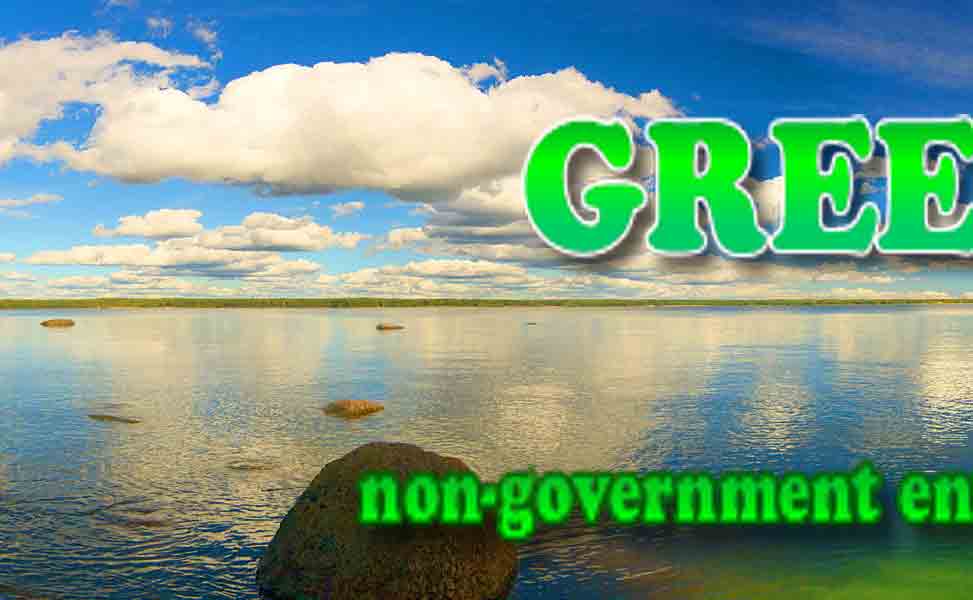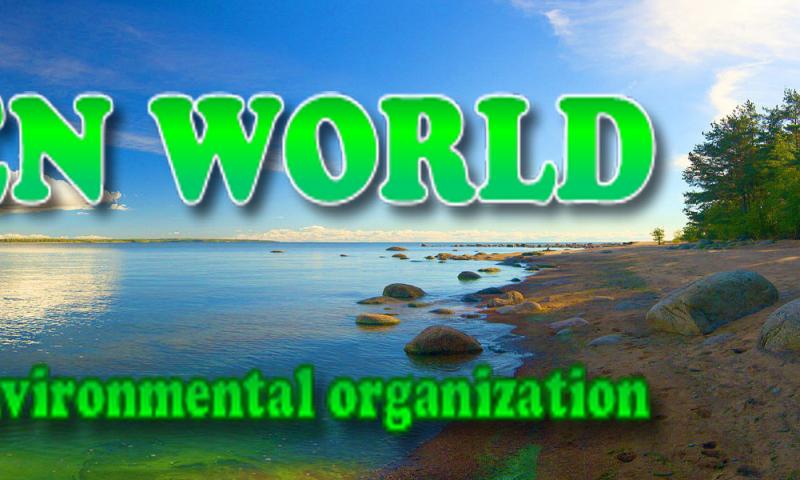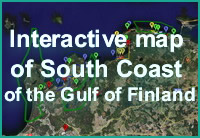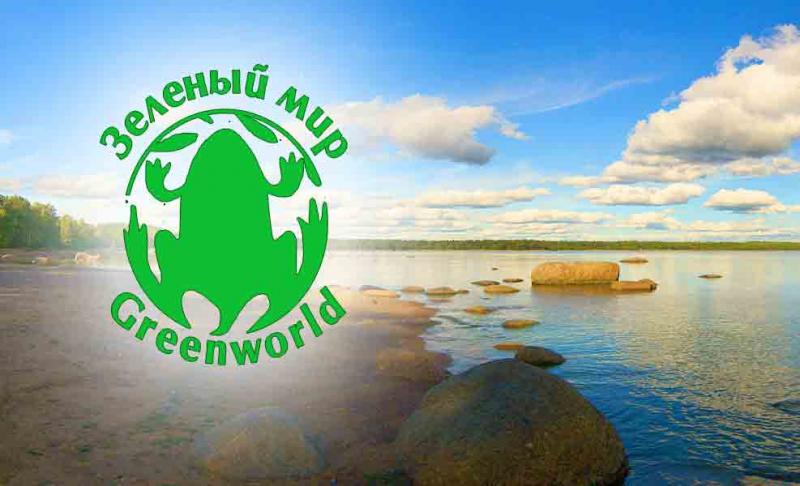
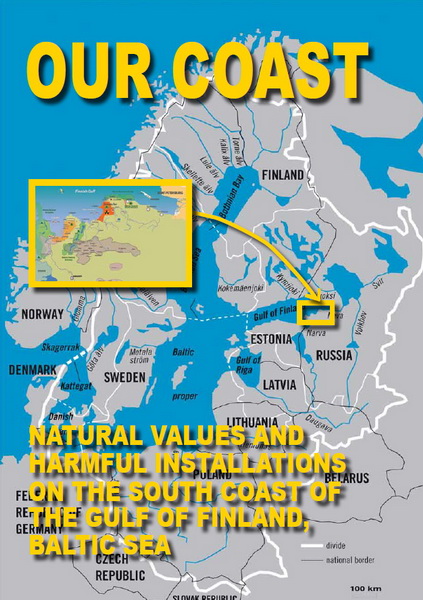 |
The South Coast of the Gulf of Finland |
|---|---|
| Natural Values and Harmful Installations |
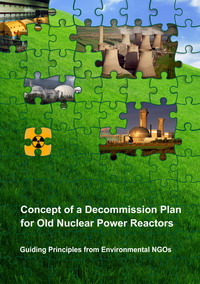 |
Concept of a decommission plan for old nuclear power reactors |
|---|---|
| Guiding Principles from Environmental NGOs |
Greens of Europe Oppose of Nuclear Power
BALTIC NEWSLETTER OF THE GREEN WORLD, № 99
780 organizations and almost 800.000 individuals from all European countries have signed the petition against nuclear power in Europe. The petition was handed over to EU-energy commissioner Andris Piebalgs in April 2007. DECLARATION
Antinuclear Europe discussed (November 2007) the consequences of the European nuclear development on the Conference and Round Table in Helsinki (Finland).
Opposing generation of nuclear power
On November 9th – 11th 2007 more than 140 energy, uranium mining and nuclear waste experts and NGO representatives from Austria, Belgium, Belarus, Czech Republic, Denmark, Estonia, France, Germany, Greece, Hungary, Italy, Latvia, Lithuania, Norway, Portugal, Romania, Russia, Slovak Republic, Slovenia, Spain, Sweden, Switzerland, Ukraine, United States and Finland gathered in Helsinki for the international “European Nuclear-Critical Conference”. The following declaration was agreed upon:
Nuclear power is not a solution to energy demands of humanity and cannot provide a sustainable concept for energy problems that are faced now and in the future. Moreover the whole nuclear energy cycle from uranium mining to handling the spent fuel causes great risks and threatens countless future generations. Climate change is a far-reaching consequence of human activities and nuclear power cannot provide a solution to this problem. It is dishonest to promote nuclear energy by arguing that it is free of CO2 emissions, since the nuclear industry does not include in their CO2 calculations every step of the nuclear fuel cycle, starting with uranium mining and ending with the spent fuel disposal.
Our governments must urgently take concrete action for energy efficiency and renewable energy technologies. Examples from Denmark, Spain and recently Scotland show that it is possible to reject new nuclear plans and instead invest in renewable energies. This will increase employment and economic prosperity both in domestic and foreign markets.
History has shown the negative impacts of uranium mining and milling on the environment and human health. The nuclear industry has violated human rights throughout the world, especially on lands and territories of Indigenous People where uranium is mined.
Because of long term health risks induced by ionising radiation (cancers, genetic problems and other diseases), the implementation of regulations in the area of radioprotection should be made by independent experts, without pressure from the nuclear proponents. A recent German study reported at the conference in Helsinki showed significantly increased risks of childhood cancer near nuclear power plants.
The sea transports of dangerous radioactive material need to be stopped. The uranium enrichment companies, Urenco and Eurodif, must stop sending nuclear waste (depleted uranium hexafluoride) to Russia, where radioactive waste is not safely stored but placed in the open field, facing erosion and weather-related risks, and posing health risks for local residents. According to the most competent experts from the Helsinki Commission the Baltic Sea is already the most radioactive sea in the whole world. KIMO, the international organisation of local authorities in coastal communities, has sharply protested against such shipments, which put millions of their coastal community citizens at great risk!
Conference experts highlighted that nuclear waste storages are not technically resolved in the planned final repositories for spent fuel of Finland and Sweden. Waste storages should not be placed close to coastal areas, and problems will arise because the geological bedrock is not solid. Further studies need to be made by objective scientists.
Building new reactors would promote the proliferation of nuclear arms and nuclear material. The production of nuclear fuel causes large amounts of radioactive waste material, so called depleted uranium. Depleted uranium is used for uranium weapons. It is an efficient, cheap, radioactive and toxic material causing widely spread pollution and health damage. These weapons must be banned immediately.
The conference participants are concerned about the plans in Russia, Belarus, Ukraine Armenia, Slovakia, Bulgaria, Lithuania and Slovenia to develop nuclear energy. These plans follow the outdated strategy that was developed during Soviet Union times. The conference participants appeal to the investors not to build new reactors but to focus on energy efficiency and endless renewable energy sources that have more potential to solve the energy issues of the countries in question. The conference participants also appeal to the Finnish, French and US governments not to invest in new nuclear reactors.
Conference experts clearly showed that if there is political will on the local, regional, national and international levels, it is possible to change the present unsustainable and high risk energy system into a system of 100% renewable energy.
Helsinki November 19th 2007
The Declaration adopted by:
1. Aktionsbündnis Münsterland gegen Atomanlagen (Action coalition against nuclear plants, Münsterland), Germany
2. Amandamaij ry, Gerd Söderholm, Finland
3. Amici della Terra, Laura Radiconcini, National Direction of Amici della Terra, Italy
4. Association of Ecological Movements of Slovenia, Karel Lipic, President, Slovenia
5. ATGAJA, Saulius Piksrys, Lithuania
6. Bürgerinitiative Umweltschutz Lüchow- Dannenberg e.v. (Peoples initiative for nature conservation Lüchow-Dannenberg), Francis Althoff, Kerstin Rudek, Germany
7. Campagna per la Riforma della Banca Mondiale (CRBM), Italy
8. Edelleen Ei ydinvoimaa – kansalaisliike (No More nuclear power –movement), Anna-Liisa Mattsoff, Marika Lohi, Finland
9. Energia Klub, Hungary
10. Folkkampanjen mot Kärnkraft/Kärnvapen (Swedish Anti-nuclear movement), Göran Bryntse, chair, Eia Liljegren-Palmaer, deputy chair, Sweden
11. Friends of the Earth Europe, Daniël Meijers, Belgium
12. Green World, (Zeleny Mir), Oleg Bodrov, chair of the Council, Russia
13. Gröna kvinnor (Green Women), Ewa Larsson, chair, Sweden
14. Itä-Uudenmaan luonnon- ja ympäristönsuojelu yhdistys, (nature and environment protection association in Eastern Uusimaa), Jyrki Ikonen, Finland
15. Kainuun luonnonsuojelupiiri ry (Kainuu nature conservation association), Tarja Leinonen, Kajaani, Finland
16. Lapland Peace Committee, Tuula Sykkö, chairperson, Finland
17. Latvian Green Movement, Latvia
18. Mediterranean Antinuclear Watch, Rhodes, Thanasis Anapolitanos, chairman, Greece
19. MegA Waltrop (Menschen gegen Atomanlagen) (People against nuclear plants), Wolfgang Porrmann, Germany
20. Miljöringen rf. (Environment Circle), Christer Alm chairperson, Finland
21. Milkas, the Swedish Environmental Movements Nuclear Waste Secretariat, Eva Linderoth, chair, Sweden
22. MN3 Network (Mediterranean No Nuclear Neighbourhood Network), representing 20 organizations from 8 Mediterranean, Black Sea and Balkan countries (Bulgaria, Cyprus, France, Greece, Israel, Spain, Turkey, Ukraine), Thanasis Anapolitanos, member of the Secretariat
23. Naiset Atomivoimaa Vastaan (Women Against Nuclear Power), Ulla Klötzer, Pirkko Lindberg, Anja Seitakumpu, Finland
24. Naiset Rauhan Puolesta (Women for Peace), Lea Launokari, Anneli Ylilokka, Lea Rantanen, Finland
25. Naisten verkosto – Irti uraanista, atomivoimasta ja atomiaseista (Women’s network against uranium mining, nuclear power and nuclear weapons), Marika Kuusakoski, Angela Oker-Blom, Finland
26. National Environmental NGO “Mama-86, Nadia Shevchenko, Ukraine
27. Norges Naturvernforbund/Friends of the Earth Norway
28. Pohjois-Karjalan uraanikaivosten vastainen kansanliike (peoples movement against uranium mines in Northern Karelia), Tuomo Tormulainen, Kontiolahti, Finland
29. Public Association “Ecohome” and Antinuclear coalition, Antonina Yelistratova, Belarus
30. Quercus - ANCN (National Association for Nature Conservation), Portugal
31. Robin Wood Deutschland e.V., Jan Becker, Germany
32. Schweizerische Energie-Stiftung, Switzerland
33. SOFA (Sofortiger Atomausstieg) (Immediate phase out of nuclear power) Münster, Germany
34. South Bohemian Mothers, Monika Machová-Wittingerová, Czech Republic
35. TEP (Tekniikkaa Elämää Palvelemaan) (Technology for Life) ry, Finland
36. Urgewald, Regine Richter, Germany
37. Überparteiliche Salzburger Plattform gegen Atomgefahren (cross-political Salzburg Platform against Nuclear Dangers), Maria Fellner, Austria
38. Za Matku Zem (For Mother Earth), Pavol Siroky, Slovak Republic
39. Jostein Aarbakke, Helsinki, Finland
40. Markku Aho, Eno, Finland
41. Tytti Aho, Eno, Finland
42. Esa Aro-Heinilä, Livonsaari, Finland
43. Birgitta Gran, Hanko, Finland
44. Hannu Haapa, Nummi-Pusula, Finland
45. Leena Halonen, Salo, Finland
46. Eva Hallström, Sweden
47. Stina Hedberg, Kirkkonummi, Finland
48. Riitta Huhtinen, Helsinki, Finland
49. Fred Hvelplund, professor, Aalborg University, Denmark
50. Marija Jankovska, Macedonia
51. Smiljana Jurecic, Slovenia
52. Britta Kahanpää, Sweden
53. Natalie Klötzer, Helsinki, Finland
54. Vanessa Klötzer, Helsinki, Finland
55. Argo Loo, Estonia
56. Irja Mäkinen, Helsinki, Finland
57. Minna Näsman, Espoo, Finland
58. Marjatta Näätänen, Helsinki, Finland
59. Dr. Alfred Körblein, Germany
60. Ari Lahti, Turku, Finland
61. Ville Lovikka, Finland
62. Nils-Axel Mörner, emeritius professor of paleogeophysics and geodynamics, Sweden
63. Jouni Nissinen, Suomen luonnonsuojeluliitto (Finnish Association for Nature
64. Conservation), Finland
65. Kristin Olsoni, Helsinki, Finland
66. Leea Parhiala, Tampere, Finland
67. Manuel Pino, professor, representing the Laguna Acoma Coalition for a Safe Environment and the Indigenous Environmental Network, USA
68. Josep Puig, PhD engineering, Professor at the Autonomous University of Barcelona, former Sustainable City Councillor of Barcelona, Vice-president of EUROSOLAR - The European Association for Renewable Energy, Spain
69. Yvonne Radestam, Sweden
70. Hannele Salava, Helsinki, Finland
71. Ilona Sandman, Espoo, Finland
72. Ulla Slama, medical doctor, Finland
73. Tuula Sykkö, Kemi, Finland
74. Tom Sörhannus, freelance journalist, author, Finland
75. Olli Tammilehto, Fiskars, Finland
76. Richard Thompson Coon, Helsinki, Finland
77. Gudrun Utas, Sweden
78. Riitta Valajas, Esbo, Finland
79. Britta Åberg, Espoo, Finland
Transfer of our information is welcome. When reprinting please refer to our periodical.
